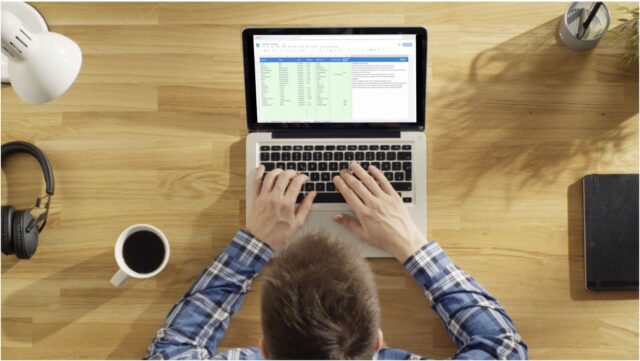
Can technology add to your personal wealth? Of course, it can, according to experts who measure and test such questions every day. Leveraging the unique knowledge that resided within various apps and computer programs can unleash your own power to save, invest and even earn more money.
It’s important to note that technology has the unique ability to make old-fashioned strategies more powerful. For example, simply using a spreadsheet app to do your monthly budgeting can help you painlessly slice large chunks of waste from your personal spending habits.
Automated investing is another of the newer pieces of tech that enhances older forms of money-making. Scan the list below and see which methods work best for you.
6Use a Robo-Advisor

Robo-advisors are one of the newer forms of technology in the financial sector. Most brick-and-mortar brokerage houses, for instance, now offer their regular customers access to a robotic investment application.
Don’t be confused by the use of the word robot, because the new technology is actually a very fancy app. But these sophisticated advisors can do a lot. Each quarter, they’ll rebalance your portfolio according to your recommendations. That way you never have to worry about having a long call with your human broker to set things right.
The big upside of robo-advisors is that their fees are much lower than normal. Human brokers tend to charge about 50 percent more than robos for all forms of brokerage services. Plus, customers still have the ability to speak with a human when necessary, or when the robot is having a bad day, i.e., malfunctioning.
5Track Personal Loans with Apps
Taking out personal loans from Earnest is a common way for financially savvy adults to finance all sorts of things, from new businesses and vacations to medical emergencies and college costs. Life doesn’t always happen in regular, predictable cycles.
That’s why financial institutions offer personal loans to individuals who need them. If your credit is moderately okay or better, you can probably get a loan without putting up collateral. Even if your credit scores are less than good, it’s still possible, although you may have to add a co-signer.
Experts say that about two-thirds of all working adults have taken out, or will take out, a personal loan at some point in their lives. One of the hidden advantages is that when you repay any debt, especially to a financial institution, your credit scores tend to improve. So, along with an improved ability to borrow in the future, you’ll be instantly improving your state of wealth right now.
4Use Advanced Spreadsheets for Budgeting

Even the spreadsheet application that came with your old desktop computer is advanced compared to the earliest versions of financial spreadsheets. Nowadays, you can even download advanced financial planning sheets that do all the calculating for you, keep assets and liabilities in different sections, and have the ability to analyze your monthly spending and show you where you are above or below national averages.
When you create a detailed budget with a top-notch spread-sheet, you learn an enormous amount about your financial state of affairs. Most people see where to reduce spending, which is the first step to letting technology earn money for you. Money not spent is money saved, which translated into more wealth.
3Use Cost-Cutting Apps to Reduce Monthly Expenses
Cost-cutting applications are also available for free at numerous websites. What can they do? Instead of the overall analysis ability of a smart spreadsheet, a cost-cutting application can go through your spending history with a fine-tooth comb and root out inconsistencies, bad habits and other behaviors that tend to lose money for you.
For example, if you load detailed grocery-buying data into a cost-cutter, you’ll get feedback about what items are adding up to the most, which food items are classified as non-essential, whether you’re spending more or less than the average person on your total food bill, and more.
Some people recoil at such technology for fear that it’s too intrusive and nosy. But the beauty of nearly all the financial tech is that you don’t have to share the information with anyone but yourself. It’s strictly for your own use and benefit. If you decide to add you anonymized results to the pool of numbers the apps use to computer average amounts, you can do so. But the decision is yours.
2Enable Your Phone for Alerts

When you enable your phone for financial alerts, you can easily stay on top of your monetary health. Whenever a bank balance gets below a certain point, for example, your phone will tell you so. The same types of warnings can be set for credit cards, loan balances, retirement accounts, and any other financial metrics you want to track.
In the case of IRAs and investments, the apps built into your phone can simply show you current balances, earnings, and upcoming changes, all in one place. The advantage of using your phone to access this kind of data is that you’ll constantly have a good feel for where all your dollars are and what they’re doing.
1Use a Password App to Protect Financial Accounts
There are dozens of top-notch password apps on the market, all of which do a pretty good job of helping you keep all your secret words organized and protected. Most of the apps are free to download to your phone, desktop or laptop. They work seamlessly and offer you a variety of decision points, like whether you want to store words online or off, whether you want to encrypt all the data, and how often you want the app to remind you to change passwords.
Many of the apps will change your words for you on a schedule determined by you. Others offer a set it and forget it the schedule that will remind you once per week, month or year that it’s time to reset. Changing your sensitive passwords regularly is a wise way to make sure hackers have less of a chance of getting to your documents, protected websites, and files.







